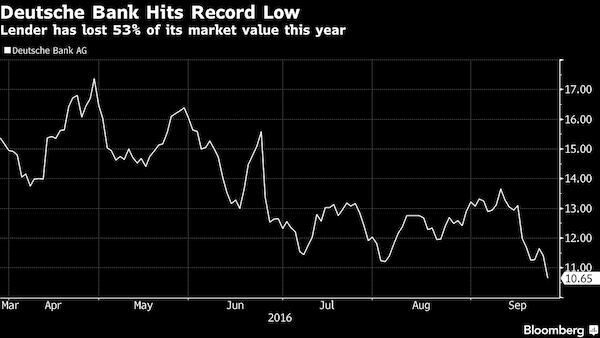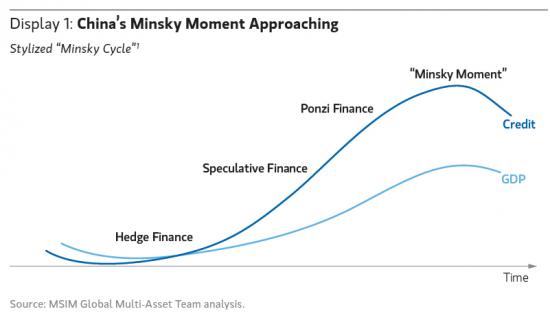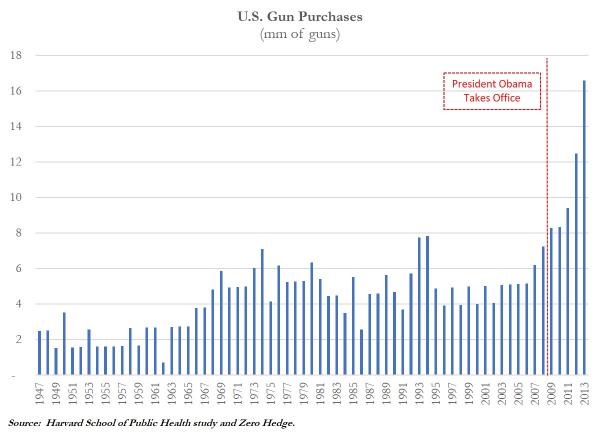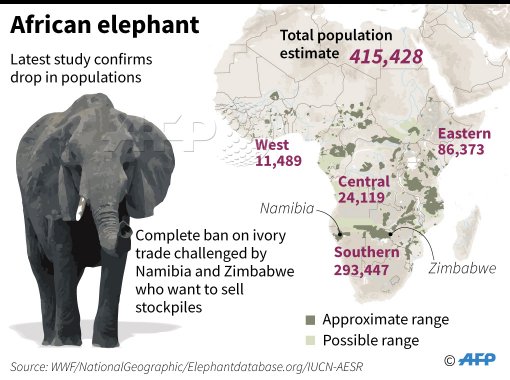
Inge Morath Window washers 1958

Using your army on your own land against your own people…
• France To Deploy Army Against Yellow Vests (G.)
France has drafted in extra security forces including army troops to try to prevent any repeat of violence during gilets jaunes protests in Paris or other cities this weekend. Police, gendarmes and soldiers will be deployed in a show of force in the capital and in the southern city of Nice, where the president, Emmanuel Macron, will meet his Chinese counterpart, Xi Jinping, for a state visit on Sunday. Despite a ban on protests in parts of Nice, yellow vest organisers have called for a demonstration there on Saturday, the 19th day of action. Protests are also expected in other French cities. Critics see the deployment of troops from Operation Sentinelle, which was established after the 2015 terrorist attacks in Paris, as provocative.
Macron’s administration views the potential escalation of civil unrest as a serious challenge to its authority and is determined to regain the upper hand after it was accused of being unprepared for last week’s riots. Last weekend protests in Paris were hijacked by rioters and looters who destroyed luxury shops, newspaper kiosks and one of the country’s most exclusive restaurants on the Champs Élysées. The Paris police prefect was sacked after his officers were accused of failing to stop the unrest. The interior minister, Christophe Castaner, spoke to the mayor of Nice, Christian Estrosi, and the local prefect, Georges-François Leclerc, on Thursday to reassure them that security forces would be deployed to avoid a repeat of last weekend’s clashes and destruction.
[..] Officials say soldiers will be used this weekend to protect key buildings, freeing up police and gendarmes to control crowds. Bruno Leray, the Paris military chief, told French radio they could “go so far as to open fire …if their life is threatened or the life of those people they are defending”. The hard-left politician Jean-Luc Mélenchon said Leray’s admission was “grave” and could “feed a fatal escalation” of violence. A number of gilets jaunes have been injured by police firing rubber bullets. “Maintaining order is not a task to be given to the army. The army’s mission is to defend the nation against its enemies, and in no way can demonstrators be considered internal enemies,” Mélenchon wrote in a letter to the prime minister, Édouard Philippe, on Friday.

Don’t say they didn’t warn you. This is their meal ticket.
• Mueller Report Is Just The Start Of A New Russia Showdown (CNN)
Robert Mueller’s latest service to America is all but complete. But the reverberations from his yet-to-be-revealed report could amount to inestimable political and constitutional consequences. The conclusion of the special counsel’s investigation was an important landmark in itself, at a moment in America’s modern history when governing institutions are under intense strain. It demonstrated that so far at least, a credible legal examination is possible into the most explosive of charges against an unchained President, without interference and despite the bitter polarization of the times. The question now is whether everyone accepts the result.
The nation could learn within days whether Mueller answered key inquiries: Did Trump cooperate with a hostile foreign power to win the 2016 election? Did he use that platform to seek to enrich himself with multi-billion dollar business deals in Russia? Did the President obstruct justice, including by firing FBI Director James Comey, in an effort to cover it all up? And is there any evidence to suggest why Trump often appears to be obedient to Russian President Vladimir Putin, following fears felt deep within the FBI that the US President was compromised? And can he explain the multiple suspicions contacts between Trump’s associates and Russians — both before and after the election — and the lies they all told about those relationships?
Trump’s team is already celebrating, claiming it is already clear that the President has already been vindicated since Mueller did not indict anyone for cooperating with Russian election meddling. The lack of charges against Trump’s son, Donald Jr. and his son-in-law Jared Kushner, who were involved in a 2016 Trump Tower meeting with Russians offering “dirt” on Hillary Clinton, especially disappointed his critics. Their escape proved the shrewdness of Trump’s consistent messaging that the only question that mattered in an investigation that held Washington spellbound for two years was whether there was collusion. “The fat lady has sung,” one Trump aide told CNN’s Jim Acosta.

“..Trump is going to reach over, grab that report, roll it up tightly into a makeshift cudgel, and then beat the snot out of his opponents with it.”
if you’re going to accuse a sitting president of being a Russian intelligence asset, you kind of need to be able to prove it, or (a) you defeat the whole purpose of the exercise, (b) you destroy your own credibility, and (c) you present that sitting president with a powerful weapon he can use to bury you. This is not exactly rocket science. As any seasoned badass will tell you, when you’re resolving a conflict with another seasoned badass, you don’t take out a gun unless you’re going to use it. Taking a gun out, waving it around, and not shooting the other badass with it, is generally not a winning strategy. What often happens, if you’re dumb enough to do that, is that the other badass will take your gun from you and either shoot you or beat you senseless with it.
This is what Trump is about to do with Russiagate. When the Mueller report fails to present any evidence that he “colluded” with Russia to steal the election, Trump is going to reach over, grab that report, roll it up tightly into a makeshift cudgel, and then beat the snot out of his opponents with it. He is going to explain to the American people that the Democrats, the corporate media, Hollywood, the liberal intelligentsia, and elements of the intelligence agencies conspired to try to force him out of office with an unprecedented propaganda campaign and a groundless special investigation. He is going to explain to the American people that Russiagate, from start to finish, was, in his words, a ridiculous “witch hunt,” a childish story based on nothing. Then he’s going to tell them a different story.

Hard to see why he shouldn’t release the whole thing.
• Letter From US Attorney General To Lawmakers On Mueller Report (R.)
Dear Chairman Graham, Chairman Nadler, Ranking Member Feinstein, and Ranking Member Collins:
I write to notify you pursuant to 28 C.F.R. 600.9(a)(3) that Special Counsel Robert S. Mueller III has concluded his investigation of Russian interference in the 2016 election and related matters. In addition to this notification, the Special Counsel regulations require that I provide you with “a description and explanation of instances (if any) in which the Attorney General” or acting Attorney General “concluded that a proposed action by a Special Counsel was so inappropriate or unwarranted under established Departmental practices that it should not be pursued.” 28 C.F.R. 600.9(a)(3). There were no such instances during the Special Counsel’s investigation.
The Special Counsel has submitted to me today a “confidential report explaining the prosecution or delineation decisions” he has reached, as required by 28 C.F.R. 600.8(c). I am reviewing the report and anticipate that I may be in a position to advise you of the Special Counsel’s principal conclusions as soon as this weekend. Separately, I intend to consult with Deputy Attorney General Rosenstein and Special Counsel Mueller to determine what other information from the report can be released to Congress and the public consistent with the law, including the Special Counsel regulations, and the Department’s long-standing practices and policies. I remain committed to as much transparency as possible, and I will keep you informed as to the status of my review.
Finally, the Special Counsel regulations provide that “the Attorney General may determine that public release of” this notification “would be in the public interest.” I have so determined, and I will disclose this letter to the public after delivering it to you.
Sincerely,
William P. Barr
Attorney General

But Russia!
• WikiLeaks Seeks To Publish Mueller Report In Full (RT)
Whistleblowing website WikiLeaks has launched a fundraiser to “facilitate the full publication” of the long-awaited Russiagate report, as many wonder: why pay for a nothingburger that’s poised to be released to the public anyway? While some wondered if the WikiLeaks’ twitter account was ‘hacked’ by the Democrats, many wondered why the whistleblowers’ website would seek to raise so much money to publish ‘literally nothing.’ Most netizens, however, seemed puzzled by the initiative, with reactions ranging from accusations of trying to ‘bribe’ Robert Mueller to the idea that WikiLeaks is trying to get hold of the report to release a ‘redacted’ version of it.
ANNOUNCE: @WikiLeaks launches $1m goal for the full publication of the 'Mueller report'. All contributions to over the next seven days (from now until Friday 29 March 23:59 GMT) will be exclusively used to facilitate the full publication of the report. https://t.co/MsNZhrTzTL pic.twitter.com/buyvw1Yvs1
— WikiLeaks (@wikileaks) March 22, 2019

Major march in London today. But there will have to be very many people for it to have any effect.
• May Urged To Go As She Hints At Pulling Third Vote On Brexit Deal (G.)
Pressure on Theresa May has reached new heights as ministers backed attempts to let parliament take control of the next stage of the Brexit process and MPs openly speculated that her time in office could end within weeks. As a beleaguered May returned from Brussels, MPs suggested her deal could lose by an even higher margin, with several saying the timing now required the prime minister to “fall on her sword”. May wrote to Tory MPs on Friday in an attempt to address some of the criticism and regain control over the process. In her letter, she even hinted she may not bring her deal back to parliament for the third time without “sufficient support” and apologised for the tone of her statement on Wednesday night where she blamed MPs for the Brexit impasse.
MPs had earlier suggested that it could be pointless for the prime minister to attempt to pass her deal next week, after a defiant statement by the Democratic Unionist party where they rejected the current state of negotiations. In her letter, May said the decision of the EU council meant she would bring back her deal next week “if it appears there is sufficient support and the Speaker permits it”. The prime minister said a number of colleagues had raised concerns about her speech in Downing Street on Wednesday. “You have a difficult job to do and it was not my intention to make it any more difficult,” she wrote, offering to hold more meetings with MPs next week. May will face further pressure from hundreds of thousands of members of the public expected to join the Put it to the People march in London on Saturday to demand a second referendum, after millions signed a petition to revoke article 50.

“..that was the moment when Angela Merkel, Emmanuel Macron and others realised they were dealing with someone out of her depth, unable to perform at the level required for the job that needed doing.”
• The EU Knows It, So Do Our Own MPs – Theresa May Is Finished (G.)
EU leaders cannot say explicitly that they no longer want to deal with the current prime minister. Urging regime change is beyond the pale of normal diplomacy among democratic states. But there is no effort to conceal the frustration in May or the evacuation of confidence in her as a negotiating partner. The one thing everyone in Brussels, Berlin and Paris had most wanted to avoid from an article 50 extension was giving May a licence to carry on behaving as she has done for what feels like an eternity. They could no longer tolerate the hollow shell of a prime minister shuttling back and forth between Tory hardliners demanding fantasy Brexits and Brussels negotiators who trade in realities.
There is a difference between patience with the prime minister and readiness to help her country navigate through its current crisis. There are still stores of goodwill available for Britain in Brussels, but they cannot be unlocked by May. The bankruptcy of May’s overseas enterprise has been coming since the day she set up shop in No 10. The squandering of credibility started almost at once, with the appointment of Boris Johnson as foreign secretary in 2016. Only someone with a tin ear for European sensibilities would have given the top diplomat job to a man known on the continent as a rogue peddler of anti-Brussels propaganda. Then there was the early negotiating period, during which EU leaders thought May’s robotic, inscrutable manner concealed a deep, strategic intelligence.
They came to realise that there was no mask. The inanity – the reciting of “Brexit means Brexit” even in private meetings – was not the cover story for a secret plan. It was the plan. The point of no return was the summit in Salzburg last September. May was invited to make the case for what was left of her “Chequers plan” to European heads of government. It was late. They were tired. There were other difficult matters to attend to. And instead of speaking candidly, persuasively, passionately or even just coherently, the British prime minister read mechanically from a text that was, in substance, no different from an op-ed article already published under her name in a German newspaper that morning. It was embarrassing and insulting.
Many European diplomats say that was the moment when Angela Merkel, Emmanuel Macron and others realised they were dealing with someone out of her depth, unable to perform at the level required for the job that needed doing.

Chaos is the only thing that’s guaranteed.
• Secret Cabinet Document Reveals Chaotic Planning For No-Deal Brexit (G.)
The extent and range of the impact of a no-deal Brexit is revealed in a confidential Cabinet Office document that warns of a “critical three-month phase” after leaving the EU during which the whole planning operation could be overwhelmed. The classified document, seen by the Guardian, sets out the command and control structures in Whitehall for coping with a no-deal departure and says government departments will have to firefight most problems for themselves – or risk a collapse of “Operation Yellowhammer”. “The … structure will quickly fall if too many decisions are unnecessarily escalated to the top levels that could have reasonably been dealt with internally …” the document says. It also concedes there are “likely to be unforeseen issues and impacts” of a no-deal Brexit that Operation Yellowhammer has been unable to predict.
The Cabinet Office has taken the lead in preparations for no deal and is desperately war-gaming scenarios in the event the UK leaves without a coherent plan. The document includes a flow-chart of a routine no-deal day in Whitehall – which starts at 7am with “situation reports” from across the UK being sent to ministers and senior officials, and continues with non-stop assessments and meetings until 5.30am the following day. This high tempo is likely to be necessary for months, the document says. One source with knowledge of Operation Yellowhammer made clear that while planning had stepped up, the overall picture remained chaotic and “rudderless”.


You’ll need them out on the street. This weekend.
• Revoke Article 50 Petition Hits Three Million Signatures (Ind.)
A petition calling for Article 50 to be revoked and Brexit cancelled has attracted more than three million signatures. The milestone, hit by midday on Friday, was reached after more than two million people signed up in less than 24 hours. It has since become the parliament website’s fastest growing petition despite the service crashing several times on Thursday, apparently unable to cope with demand as people voiced their discontent for Theresa May’s plans for the UK’s withdrawal from the European Union. Signatures continued to be added even after the threat of a no-deal exit on 29 March was removed when EU leaders agreed Brexit could be delayed. At one point nearly 2,000 people were signing up every minute.
Analysis by software firm Tableau of the 16,000 petitions running on the government website showed the revoke Article 50 petition had more than three times as many signatures as all the pro-Brexit petitions combined. After the number of signatures passed one million, the petitions committee, a cross-party group of MPs appointed to examine petitions to parliament, said the rate of signing was the highest its website had ever had to deal with. Organiser Margaret Anne Georgiadou wrote: “The government repeatedly claims exiting the EU is ‘the will of the people’. “We need to put a stop to this claim by proving the strength of public support now for remaining in the EU. A People’s Vote may not happen – so vote now.”

US universities appear to become a lifeform all their own.
• Coercion Meets Its Match (Kunstler)
It’s not hard to see how this fiasco developed and blossomed. In the 1960s, when I was in college, Marxism offered a neat, pre-engineered template for opposing the odious Establishment that blundered into the Vietnam War. Students then at least had skin in the game: the threat of getting drafted into the army and shipped over to die in the jungle for a senseless conflict. In fact, many young men unsuited for college took refuge there to evade the military. Then, with a bull market in Boomer Generation PhDs, the faculties were soon filled with the former Sixties radicals.
Many were Boomer women, who set out to explain and correct the evolving relations of men and women in the office workplace of the day. By then the war was over. The sick economy of the 1970s put an end to the ability of men to support a family and more women were forced to enter the office environment. Meanwhile radical progressivism needed an ever-fresh supply of new aggrieved parties to justify its agitation against the old Marxist bugbears of bourgeois values and structural oppression — and incidentally fuel academic careers. Hence, the multiplication of victims into handy intersectional categories.
By the 1980s, it also became evident that 60s civil rights legislation to end Jim Crow laws had not solved the quandaries of race in America, and that disappointment refreshed the progressive crusade to heal the world of injustice and inequality. Every other effort to produce equal outcomes for different categories of people had also proved disappointing, so now progressives resort to plain coercion to force equal outcomes at all costs, and nowhere is that behavior more overt than on campus the past decade.
















